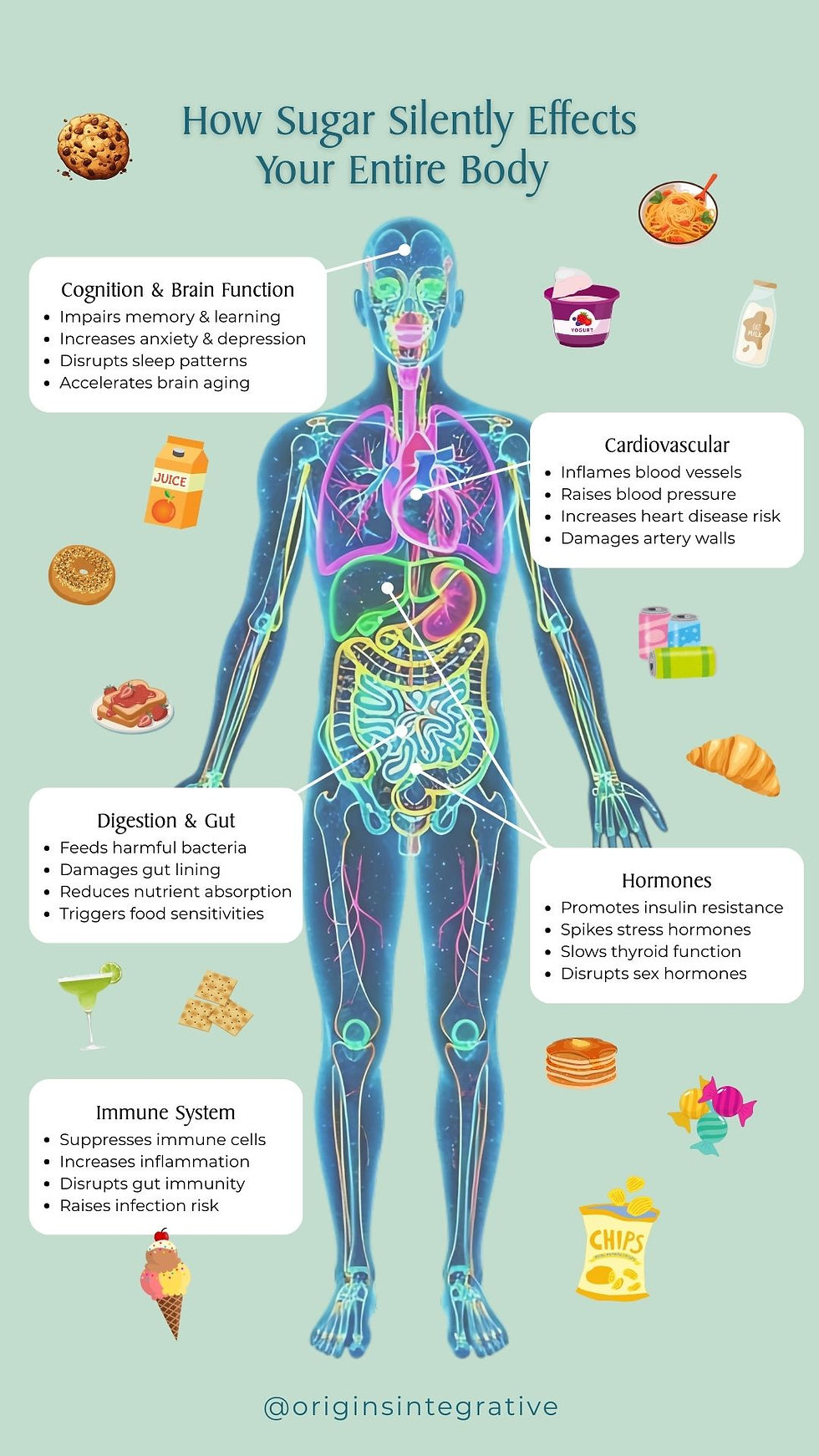Protect Your Hormones - Understanding Endocrine Disruptors
- Jaime Heer, FNTP

- May 29, 2024
- 3 min read
You may have heard the term "Endocrine Disruptors" before, but you might still be wondering what exactly these are and how they can impact your health. Keep reading to explore this topic and discover simple steps that you can follow to reduce your exposure to these potentially harmful chemicals.

What Are Endocrine Disruptors?
Endocrine disruptors are chemicals that can interfere with your endocrine system, the network of glands and hormones that regulate crucial body functions, including:
Fertility
Sex drive
Energy
Weight
Hunger
Digestion
Mood
Focus
Immune health
And more!
How Do Endocrine Disruptors Affect Hormones?
Hormones are act as your body's messengers, traveling through the bloodstream to tissues and organs to tell them what do to. Endocrine disruptors can interfere with these messages in several ways:
Mimicking Hormones and tricking the body into overreacting or under-reacting. (As in the case of xenoestrogens.)
Blocking Hormones by binding to hormone receptors, blocking the actual hormone from doing its job. This can lead to deficiencies and imbalances.
Altering Hormone Levels by increasing or decreasing the production of hormones, disrupting the delicate balance needed for optimal health.
Most commonly disruption occurs due to Xenoestrogens, which are chemicals that can imitate estrogen in your body. They can be an underlying culprit for many of the hormonal imbalance symptoms and conditions that women experience including weight gain, PMS, fertility issues, hot flashes, brain fog and night sweats.
It's important to note that the term "hormones" refers to more than just our reproductive hormones - estrogen, progesterone and testosterone. It includes a vast array of other hormones that are essential to regulating our body systems including:
Thyroid hormones - regulates energy, weight, metabolism, and also contributes to having healthy hair & nails, regular cycles and sharp brain function.
Insulin - regulates how you metabolize blood sugar, proteins, fats & carbohydrates.
Leptin - tells you when we are full and satiated.
Cortisol - determines your ability to respond to environmental stress & regulates the immune system.
Oxytocin - also know as the “love hormone”. It's abundant in new moms postpartum and also influences love and a sense of bonding with others throughout your life.
Common Sources of Endocrine Disruptors
Plastics: Items containing BPA and phthalates.
Personal Care Products: Shampoos, soaps, and cosmetics with parabens and synthetic fragrances.
Pesticides: Chemicals used in agriculture that can linger on our food.
Household Cleaners: Many contain harmful chemicals.
Processed Foods: Often contain preservatives and artificial ingredients.
Synthetic Fragrances: Such as those found in candles, air fresheners, cleaning products and perfumes.
Health Implications of Endocrine Disruption
The impact of endocrine disruptors can be profound, leading to various health issues such as:

Acne
Weight issues
Irregular menstrual cycles, PCOS, fibroids and other hormone conditions
PMS, Monthly breast tenderness
Fertility challenges & miscarriage
Menopause symptoms: hot flashes, night sweats, mood swings, fatigue, memory issues
Developmental issues in infants and children
Premature puberty
Cognitive issues, brain fog, ADD & ADHD
Mood imbalances, anxiety, depression
Metabolic disorders like obesity and Type 2 diabetes
Increased cancer risk, particularly breast, uterine, testicular and prostate cancers
Thyroid conditions
Autoimmune disorders
Understanding endocrine disruptors and their effects can empower you to make informed choices. By taking simple steps to reduce your exposure, you can help protect you and your family's hormonal health and overall well-being.
Steps to Reduce Exposure to Endocrine Disruptors
Choose Glass or Stainless Steel Over Plastic: Use glass or stainless steel containers for food and beverages. Avoid microwaving plastic containers, which can cause chemicals to leach into food.
Go Natural with Personal Care Products: Opt for natural, organic personal care products. Look for items free from parabens, phthalates, and synthetic fragrances. We love Attitude and Blueland.
Eat Organic Whenever Possible: Reduce pesticide exposure by choosing organic produce, eggs, dairy, meat and poultry. Wash all produce thoroughly to remove any chemical residues.
Be Mindful of Household Cleaners: Use natural cleaning products or make your own using these recipes.
Limit Processed Foods: Choose whole, unprocessed foods to avoid additives and preservatives that can act as endocrine disruptors.
Avoid synthetic fragrances: Like those that are commonly found in scented candles, perfumes, air fresheners, personal care products & cleaning supplies.
Along with taking steps to avoid these chemicals, living an active and healthy lifestyle with regular movement, an antioxidant rich whole foods diet, stress management practices and restful sleep will go a long way in helping your body to defend against the effects of endocrine disruptors.
We are here to support you on your health journey. If you have any questions or need personalized guidance, don't hesitate to reach out to us:




Comments